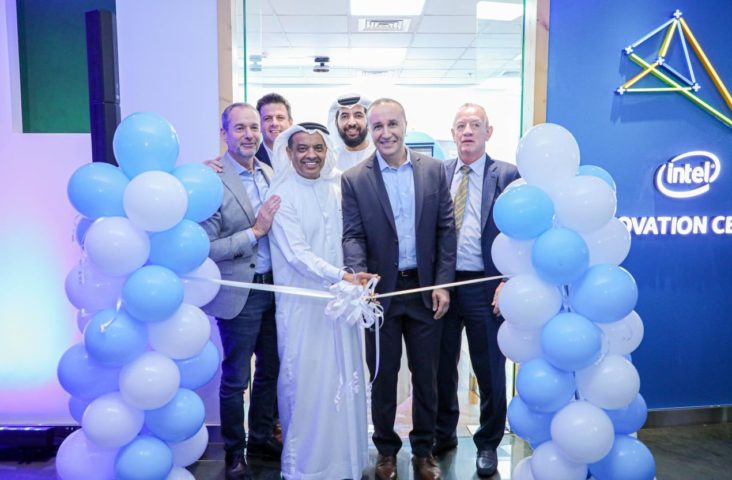Dubai Silicon Oasis And Intel Launch New Phase Of The Innovation Center To Pioneer Middle East’s Digital Transformation

Dubai Silicon Oasis (DSO), the integrated free zone technology park, and Intel, the Silicon Valley-headquartered tech giant, today announced the launch of the new phase of “Intel Innovation Center” that is directly aligned with the “Project Mustakbal”, an initiative that was revealed by Intel during the event and seeks to further accelerate the Middle East’s game-changing digital transformation.
Hosted at Dubai Technology Entrepreneur Campus (Dtec), DSOA’s wholly owned tech incubation center, Intel Innovation Center is set to become a hub for future technological development in the region that will feature artificial intelligence (AI), Blockchain, Video analytics and Autonomous Driving. The center’s offerings will span three categories: Market-ready Solutions, Intel Select Solutions and Intel Technology Showcase Demos.
- Juma Al Matrooshi, Deputy CEO of DSOA, officially inaugurated the Intel Innovation Center along with Taha Khalifa, Client Computing Sales Director and EMEA Territory GCC Country lead at Intel Corporation, in the presence of Eng. Muammar Al Katheeri, Executive Vice President of Engineering and Smart City at DSOA, Steven Long, Vice President Sales and Marketing Group & GM of CCG Sales at Intel, and senior officials from the two entities as well as Intel’s business partners.
Engineer Muammar Al Katheeri said: “Four years ago, we launched with Intel the region’s first Internet of Things (IoT) ignition lab that has already added significant value to tech start-ups and entrepreneurs in the UAE. Today we celebrate our partnership with Intel as we step forward together into a new milestone through the inauguration of the Intel Innovation Center that has found an ideal home at DSO. With its dynamic mix of business partners and boasting an environment that fosters the entrepreneurial spirit, DSO continues to push the boundaries of technological innovation.”.
He added: “As digital transformation continues to disrupt our business environment; we support the UAE leadership’s vision to realize a knowledge economy. We firmly believe that this center will serve as a creativity and innovation simulator for tech startups and entrepreneurs to develop new disruptive ideas in the digital field that will continue shaping a tech-enabled future.”
According to the International Data Corporation (IDC), there is a 12% Year over Year growth in Information and Communication Technologies (ICT) spending to enable digital transformation. Intel is moving through a transformation to a data-centric company with the new phase focused on innovation.
“The UAE is one of the leading countries in innovation and we are very proud to contribute with Dtec to accelerate digital transformation in the Middle East and launch “Project Mustakbal” our digital transformation initiative in the region” said Taha Khalifa.
He added: “The innovation center underlines Intel’s continuous efforts to support the innovation community by facilitating access to the latest Intel technologies and hereby support the Dubai 2021 vision. It has already been popular with more than 1,000 visitors in the last four years. In that time, we have welcomed over 50 government delegations from around the world. We have received more than 100 high profile executives and CEO’s from local and multinational companies.
“In addition, we have supported Dtec with all their events such as Dtec forums, Dtec Emirati Boot Camp and Startup Boot Camps. The center has hosted sessions for Emirati Bootcamp and 10X DSOA Innovation academy cohorts while conducting more than 25 workshops in the Lab for school and university students on IoT and Blockchain technologies. We have also carried out over 50 educational tours for university students from Rochester Institute of Technology (RIT– Dubai), Manipal University, Herriot Watt and HCT and supported Dtec with multiple hackathons to continue promoting programming, innovation and creativity amongst Dubai Students.”
The potential advantages of region-wide digital transformation are immense. An analysis by American worldwide management consulting firm McKinsey & Company indicates that a unified digital market across the region could see 160 million potential digital users by 2025 and contribute up to 3.8 percent – approximately US$95 billion – to the gross domestic product (GDP) annually. The shift can also have a positive effect on inclusion and poverty reduction, improve access to and quality of healthcare and education, and cut down on CO2 emissions.


